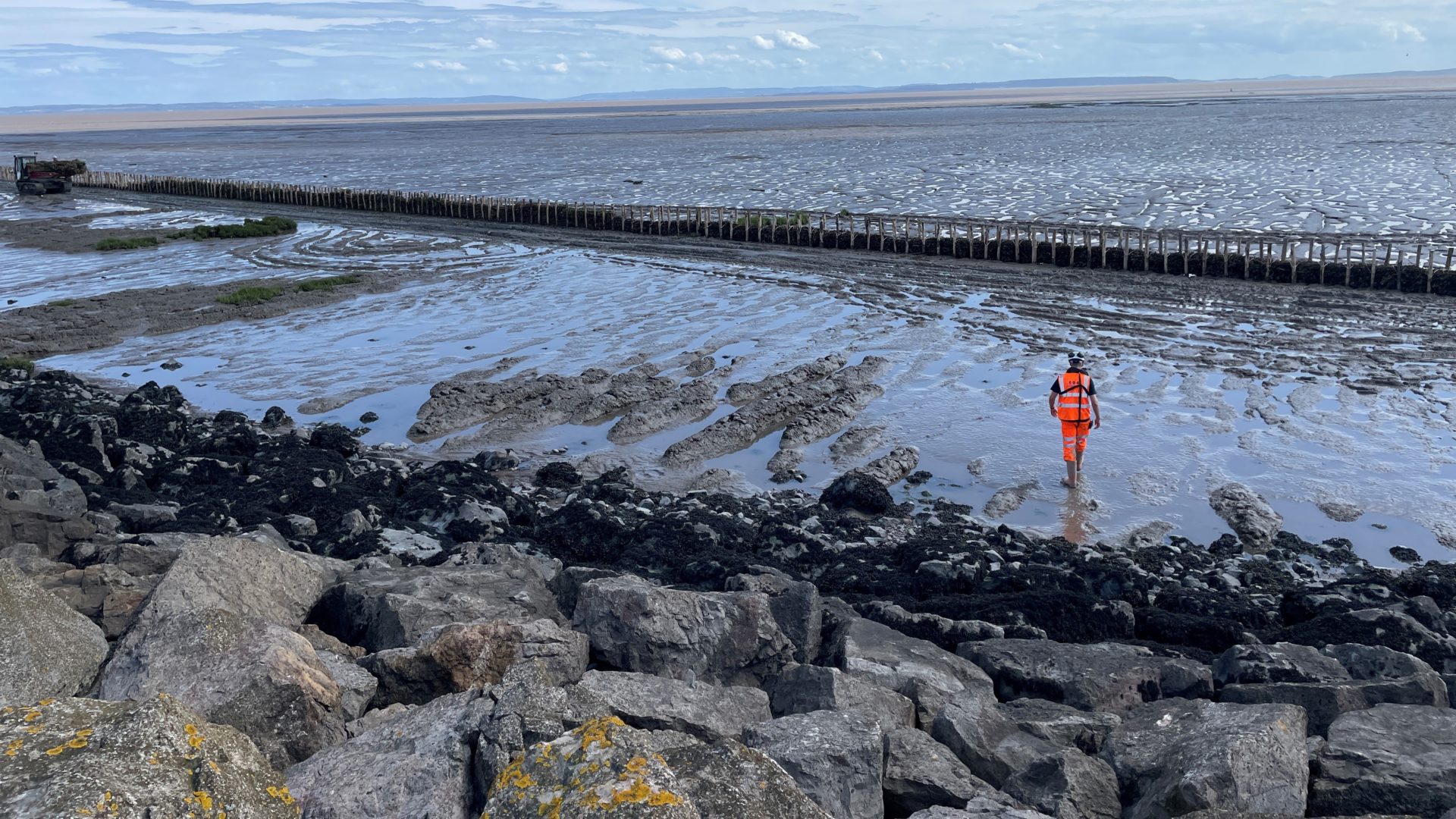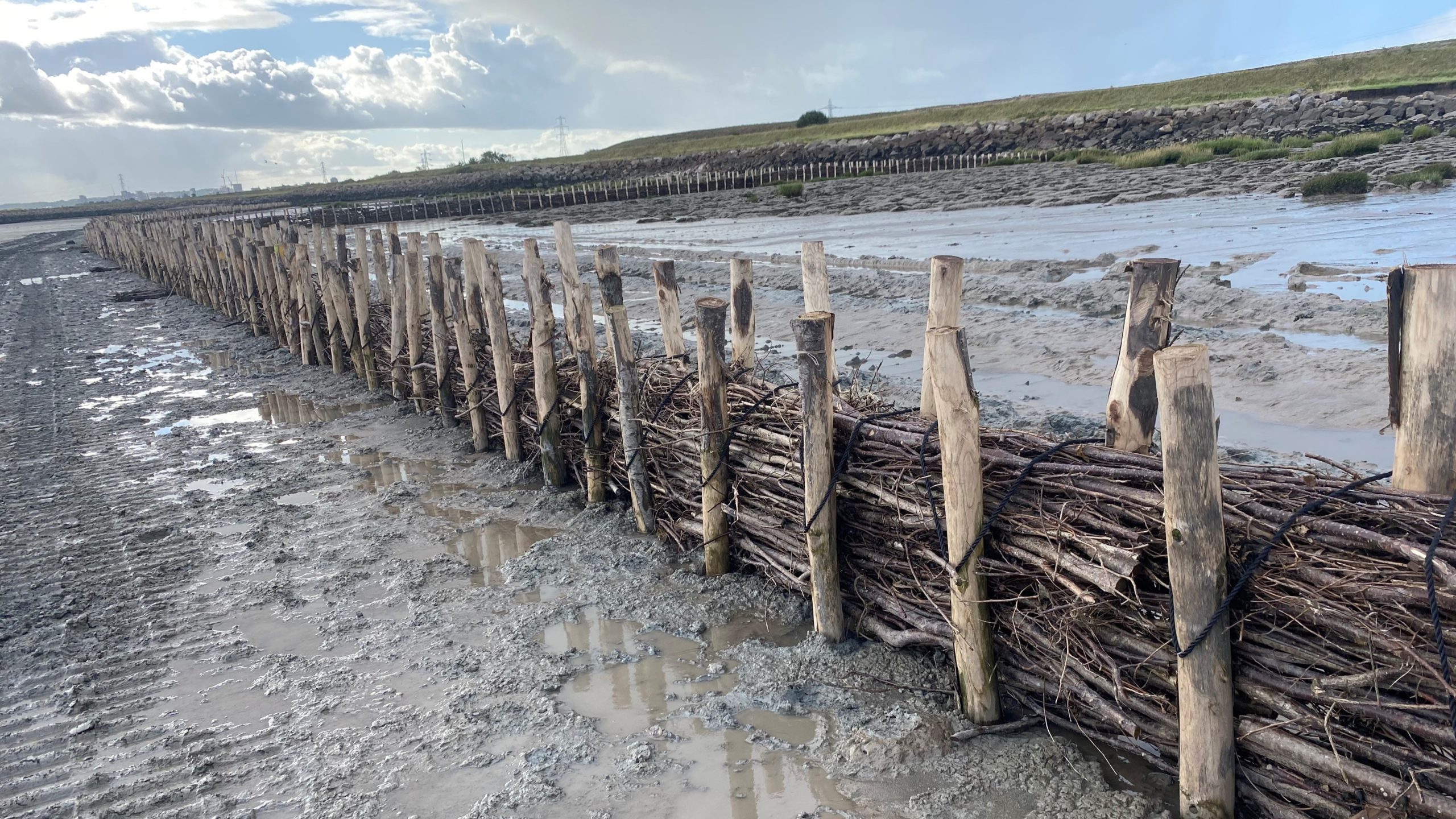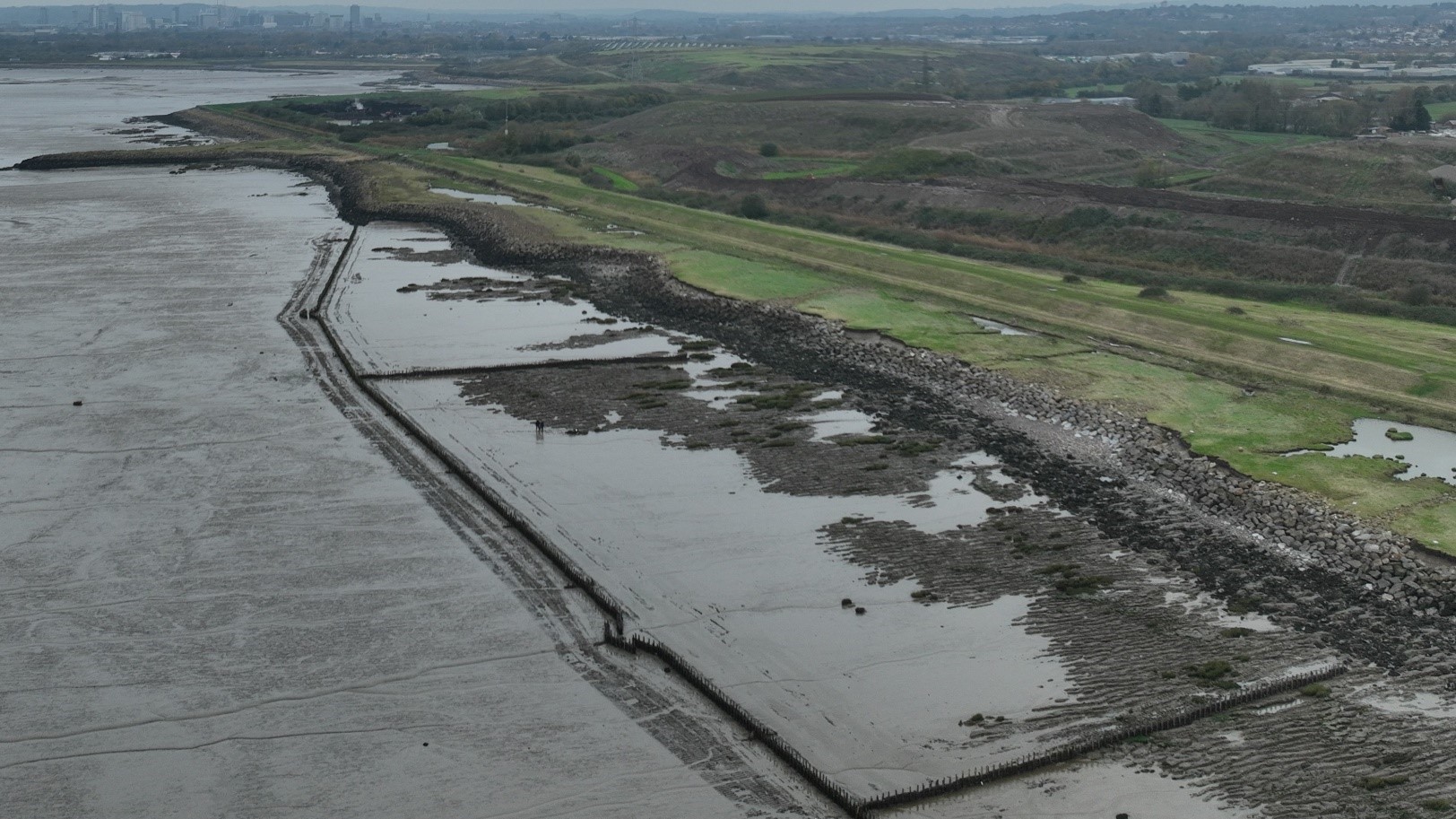Work to restore the saltmarsh habitat along the Severn Estuary near the Rhymney Great Wharf in south Wales, has been completed.
The work carried out by Natural Resources Wales (NRW) will help to increase biodiversity and resilience in the Estuary as well as reducing flood risk in the area.
Delivered as part of the Welsh Government-funded Nature Networks programme, the restoration has included the renewal and extension of over 2km of sedimentation polders along the foreshore.
The structures, which are made of chestnut posts and brushwood bundles, help encourage the establishment of saltmarsh habitat, by slowing the movement of the tide as it recedes, allowing sediment to be deposited within the polder fields.
Over time, mud and sand builds up and turns into saltmarsh. This will help restore the important habitat of the Severn Estuary, supporting local wildlife and helping to trap carbon.
The Estuary supports some of the most important and protected habitats in the UK, and is designated as a Special Area of Conservation (SAC). It hosts a significant number of waterfowl and aquatic invertebrate as well as providing a valuable corridor for migratory fish.
This nature based solution will also help to enhance the existing flood defences and reduce future flood risk by reducing pressure from erosion.
Deputy First Minister with responsibility for Climate Change, Huw Irranca-Davies said:
“Saltmarsh habitat restoration is such an important part of how we tackle the climate and nature emergencies. It has huge potential to store and sequester carbon, as well as promoting nature and wildlife.
“This completed project at Rhymney Wharf has received nearly £852,000 of Welsh Government funding through our Nature Networks programme and will help us to protect our precious marine environment.”
Lily Pauls, Team leader for marine projects at NRW said:
“We’re delighted that work to help improve this important habitat has been completed.
“Helping to restore nature is in everyone’s interests and improving the conditions across the Rhymney Great Wharf, will support the mudflat and saltmarsh to replenish themselves and create better conditions for the wildlife that lives in and around them.
“These habitats are incredibly valuable for so many reasons. Ecologically, they support everything from specialist plants to birds and fish, so they play a vital role in nature conservation and are such an important part of the coastline along the estuary.
“Healthy saltmarshes can also provide flood protection, trap carbon to help against climate change, so they can make an important and positive contribution to safeguarding against the climate emergency.
“This project is a great example of how we are working towards our corporate plan ambitions to become nature positive by 2030.”





